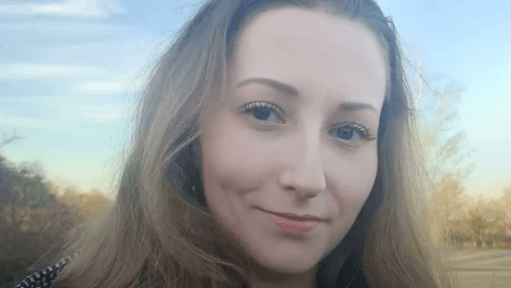
Debate Over Euthanasia Rages in Europe While UAE Maintains Strict Ban on Mercy Killing
Zoraya ter Beek, a healthy 29-year-old Dutch woman Granted Permission for Assisted Dying
A fierce debate has erupted in the Netherlands and across Europe following the decision to allow Zoraya ter Beek, a healthy 29-year-old Dutch woman, to opt for assisted dying due to unbearable mental suffering.
Once aspiring to be a psychiatrist, Zoraya now suffers from chronic depression, anxiety, trauma, borderline personality disorder and autism.
Despite her physical health, she has long wished to die and sought official permission for euthanasia, which has been granted, allowing her to end her life in the coming weeks.
This decision has reignited discussions about the Netherlands' euthanasia laws, established in 2002. Although the number of assisted dying cases has been increasing, it remains relatively uncommon. There were only two such cases involving psychiatric suffering in 2010, compared to 138 in 2023.
Zoraya’s struggles with depression and suicidal thoughts began in early childhood. She first applied for assisted suicide in 2020. Despite her partner's efforts to provide a supportive environment, her mental health did not improve and she continued to experience suicidal thoughts.
Facing criticism for her decision, Zoraya defended her choice, asserting that it stems from her severe mental illnesses. She acknowledged the concerns of disabled individuals regarding assisted dying and criticised the perception that mentally ill people cannot make rational decisions, calling it insulting.
Zoraya deleted all her social media profiles due to distress caused by numerous users urging her to reconsider her decision. This highlights the intense scrutiny she faced.
Euthanasia and Mercy Killing Strictly Prohibited in UAE
The Netherlands is renowned for its progressive euthanasia laws, which permit assisted suicide for individuals experiencing unbearable suffering with no prospect of improvement. In stark contrast, countries like the UAE impose an outright ban on mercy killing.
Mercy killing, also known as euthanasia, involves directly ending another person’s life to relieve pain and suffering from an incurable or terminal condition.
UAE law strictly bans mercy killing for any reason, including with the consent of a dying patient or at the request of their guardians or relatives.
The only exceptions are cases of respiratory arrest (complete cessation of breathing), cardiac arrest (sudden stop in effective blood flow due to heart failure), or brain death (complete and irreversible loss of brain function).
Euthanasia and physician-assisted suicide (PAS) are legally prohibited in all Middle Eastern countries, reflecting historical and religious perspectives.
Federal Law No. 4 of 2016 on Medical Liability
The Ministry of Health and Prevention introduced Federal Law No. 4 for the Year 2016 on Medical Liability to medical practitioners in the UAE.
This law was developed after a thorough comparative analysis of medical liability and patient safety laws from the United Kingdom, the United States, the Netherlands, Australia and Canada.
The legislation comprises 46 articles that outline the responsibilities and rights of medical practitioners and institutions.
Significantly, the new law bans human cloning, abortion, sex change and euthanasia, with certain exceptions.
An interesting aspect of this law is its provision of clear definitions. For example, Article 10 permits euthanasia only if the patient's heart and breathing have irreversibly ceased, or if all brain functions have completely and terminally stopped according to precise medical standards, as determined by a forthcoming ministerial decree.
Violations of this law can result in jail sentences ranging from two to ten years and fines between Dh10,000 and Dh1 million.
Religious Perspective
In the Middle East, ethical decisions are profoundly influenced by religious beliefs. Judaism, Christianity and Islam, the three main religions in the region, all uphold the sanctity of life and generally prohibit euthanasia.
The Judaeo-Christian Bible emphasises 'divine ownership' of life, as stated in 1 Corinthians 10:26, and various theological teachings oppose euthanasia and suicide.
St. Augustine, an early Church father, applied the sixth commandment against murder to include suicide and euthanasia (Bettenson, 1972). Similarly, St. Thomas Aquinas, influenced by Jewish scholar Maimonides, argued that killing an innocent person, regardless of their health status, is strictly forbidden.
The Roman Catholic catechism teaches that euthanasia is a sin against the commandment to love God, oneself, and one’s neighbor (Matthew 22:38–40), and against God's specific plan for each person (Ephesians 2:10).
The Qur'an stresses that God is the 'owner' and 'giver' of life (Qur'an 3:145; 16:61) and highlights God's mercy (Qur'an 4:29). Life is seen as a trust from God, and deliberate termination of life is not permitted unless in the course of justice (Qur'an 6:151). Islamic teachings, particularly those of Prophet Mohammed, strongly oppose euthanasia.
For instance, Jundub narrated that the Prophet said: "A man inflicted with wounds committed suicide, so Allah said: My slave has caused death on himself hurriedly, so I forbid paradise for him" (Khan, 1995).
Studies by Van den Branden & Broeckaert (2011) and Islamic religious rulings (e-fatwas) also conclude that euthanasia is forbidden in Islam.
Cultural Considerations
In the Middle East, the limited disclosure of medical information to terminally ill patients and sometimes to their families complicates end-of-life decisions.
Ethical decisions are often inseparable from religious beliefs. Understanding the historical, spiritual and cultural perspectives of Middle Eastern patients is crucial for healthcare professionals, especially those practicing in Western countries with sizable Middle Eastern communities.
Conclusion
The Middle East holds a unique historical position with a deep cultural and religious heritage that shapes its approach to end-of-life care.
Medical professionals need to understand these perspectives to provide culturally and religiously sensitive advice on end-of-life decisions.
Only through this understanding can healthcare providers offer appropriate support and guidance to patients from diverse backgrounds.
For any enquiries or information, contact ask@tlr.ae or call us on +971 52 644 3004. Follow The Law Reporters on WhatsApp Channels.